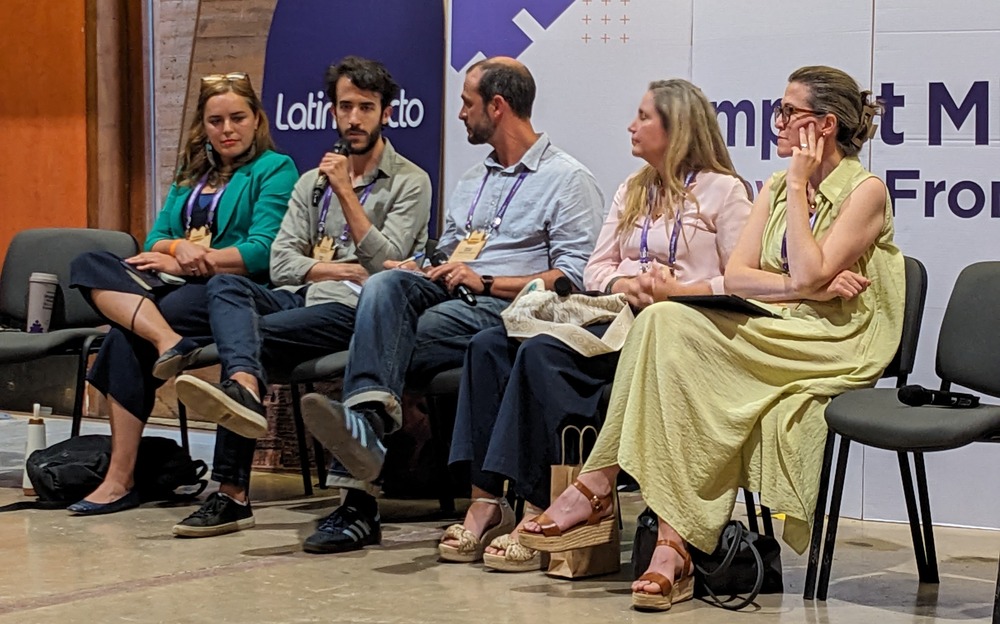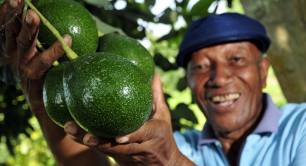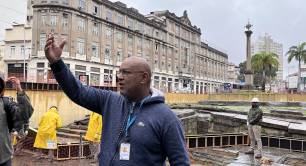The Editor’s Post: Lessons in seeding the bioeconomy at Latimpacto’s Impact Minds conference

Ideas on best to cultivate the bioeconomy in Latin America, a potential new far-right threat to EU social economy commitments and a social enterprise ferry in Scotland. This week’s view from the Pioneers Post newsroom.
As a Guatemalan with a background in sustainable agriculture, Pablo Chacón jumped at the chance to invest in a restaurant in Guatemala promoting local cuisine made from sustainably sourced ingredients.
Pablo was excited to develop a tortilla recipe including amaranth seed. Amaranth is an excellent source of protein and has deep cultural significance, having been cultivated by the Aztecs and Maya 8,000 years ago.
Sourcing amaranth seeds from smallholder farmers is an example of what is increasingly being recognised as the “bioeconomy” in action. This refers to the use of renewable biological resources from land and sea to produce food, materials and energy.
But Pablo and his tortillas hit a problem. Because of the high price of the amaranth seeds, the tortillas cost eight times more to make than with the original recipe. Pablo’s ambitions had run up against cold, hard business logic: he couldn’t sell the tortillas at a price to make the seeds affordable.
I spoke to Pablo at Impact Minds, the annual gathering of Latimpacto, a network of venture philanthropists in Latin America and the Caribbean, which took place this week in Oaxaca, Mexico. The theme of the bioeconomy was key at the event this year. (Pioneers Post is delighted to be a media partner to Impact Minds.)
Opening the conference, Latimpacto CEO Carolina Suárez invoked the Oaxacan festival of Guelaguetza, an Indigenous celebration of cultural diversity. Suarez welcomed the 654 attendees representing 210 organisations from 36 counties across the world, emphasising the importance of collaboration, saying "money by itself won't generate social change”.
The conference included the launch of applications for the Green Catalytic Fund to tackle carbon emissions in the region. Read more in our story about the US$4m fund.
During a session focused on the bioeconomy, the problem Pablo and his tortillas faced was discussed from a wider perspective. Delegate Anna de Souza Aranha, co-CEO of Brazilian impact accelerator Quintessa, posed the question: who would pay for any additional costs of bioeconomy products to cover both the production and their regenerative value?

As another audience member pointed out, the producers, often low-income Indigenous or rural communities, simply cannot afford to absorb the cost. After the session, Anna raised the prospect to me of bioeconomy products ending up as niche or luxury products, like many sustainable fashion brands are today, severely limiting the potential for impact.
So if the extra cost cannot be covered by the producers or the customers, how about the businesses in between – those that transform the raw products to distribute them to customers? Maybe we can learn from Pablo, who decided to innovate his business practice. By bringing in a machine to reduce the cost of making tortillas, Pablo’s restaurant is planning to make the price acceptable to its customers.
Speaking during the session, Laura Ortiz Montemayor, chief purpose officer at impact investor SVX Mexico, described biodiversity (which is sustained and even improved by bioeconomy activities) as “the world’s life insurance”. She added that increasing “ecological intelligence”, or general understanding of environmental concepts, would enable businesses and investors to make better decisions regarding the bioeconomy.
Perhaps Pablo and his amaranth seed tortillas illustrate Laura’s point, but we’re a long way from all business owners having the same level of ecological intelligence and commitment to environmental renewal. The promise of ecological regeneration and improving the livelihoods of Indigenous and local communities makes the bioeconomy a tantalising prospect, but one which currently faces significant challenges.
With COP16 taking place in Colombia in October and the bioeconomy set to also be a key theme at that event, it remains to be seen if the conditions can be created to allow it to grow to reach its full impact potential.
Can you help shape our reporting?
You might have noticed an addition to our website: a two-question survey at the end of some of our stories, including this week’s Brussels Briefing, to help us understand their reach and impact.
Please do take 30 seconds to share your responses, it really helps us to learn what’s working or not working for you. (As members of the Pioneers Post community, we know that you understand how important this is.) And, of course, if you have other feedback or comments, we’re always happy to hear those too: you can reach us by emailing news@pioneerspost.com.
This week's top stories
Brussels Briefing: Is there a new far-right threat to EU social economy commitments?
Podcast: Good Stories Episode 1 – Isle of Skye Ferry CIC
Image: A dance performance which opened Impact Minds: Beyond Frontiers




